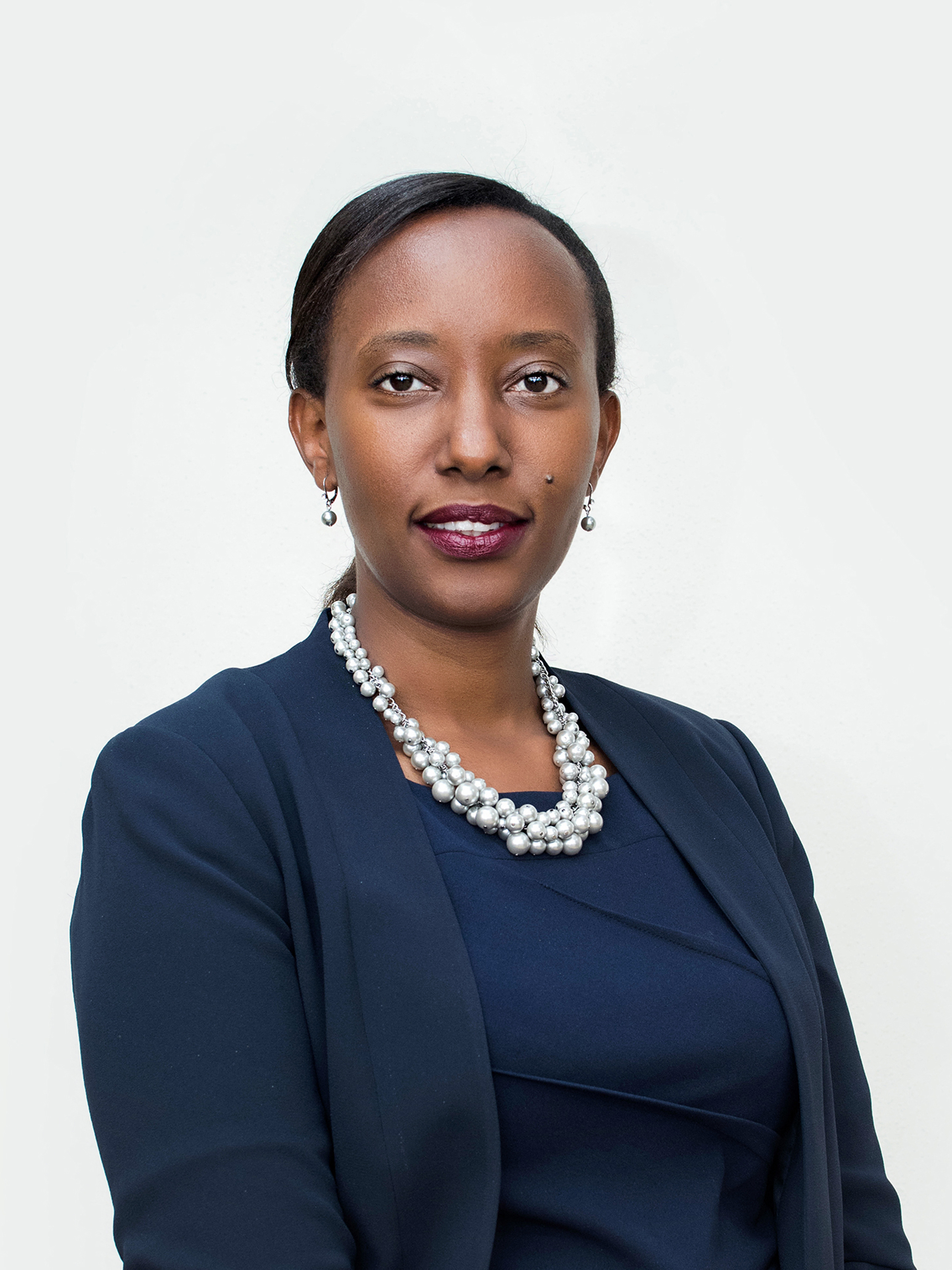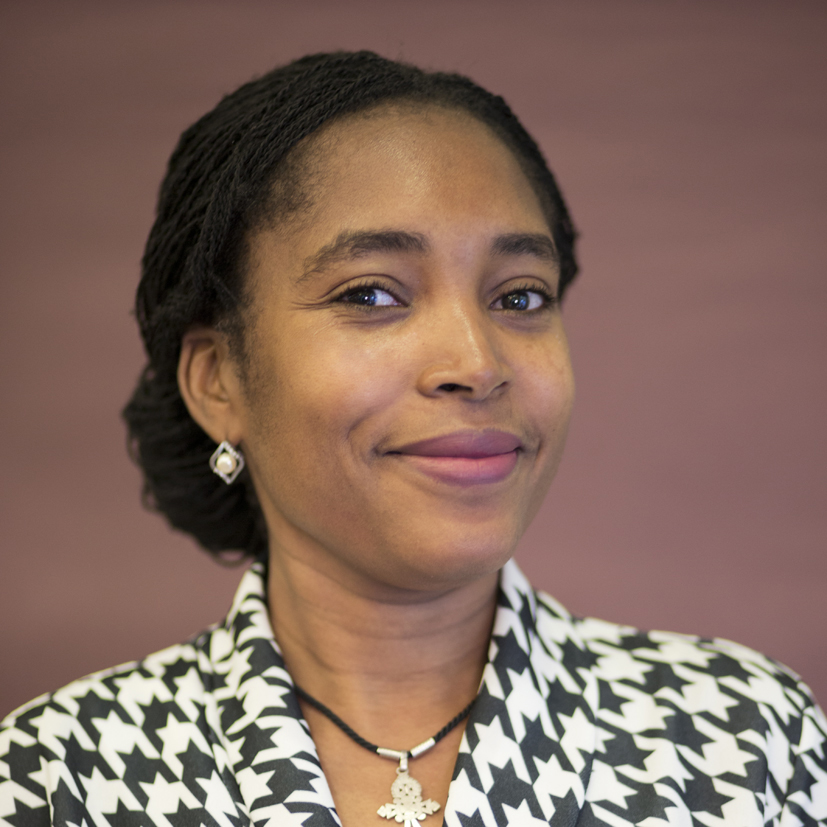Building Resilient Digital Infrastructure
Rwanda
Session 447
Towards Trusted Financial Inclusion and Effective Digital Government Services
Since the year 2000, the Government of Rwanda (GoR) has set out a vision to transform Rwanda from an agrarian economy to a middle-income country and knowledge-based economy, using Information and Communication Technology (ICT) as the engine for development that is placed at the heart of the transformation across all sectors.
Rwanda now aspires to reach Middle Income Country (MIC) status by 2035 and High-Income Country (HIC) status by 2050. This aspiration will be carried out through a series of seven-year National Strategies for Transformation (NST1), underpinned by detailed sectoral strategies that are aimed toward achievement of the Sustainable Development Goals.
Rwanda was in the middle of an economic boom prior to the COVID-19 pandemic. Economic growth exceeded 10% in 2019, driven mostly by large public investments for implementation of the National Strategy of Transformation. Strong growth is expected to continue after COVID-2019 pandemic.
At the global level, Rwanda is keen on aligning her digital transformation agenda to different trends such as the implementation of WSIS action lines and Sustainable Development Goals (SDGs).
WSIS Action Line 2 sets out a number of steps to deliver resilient connectivity through investment in digital infrastructure. Other WSIS action lines such as 3, 4 and 7, further highlight steps to leverage the sustainable connectivity to drive competitive digital economies through Fintech and other technology innovations.
Rwanda continues to be one of the fastest growing African countries in ICT, from service digitization, mobile technologies, applications development and automation. Much emphasis was put on Broadband as a basic need for all Rwandans and this was realized through 4G-rollout where 4G LTE services is at 96.7% of geographic coverage and 96.6% of population coverage, while 3G and 3.5G services are at the rate of 93.37% of population coverage.
Deployment of LTE technology in Rwanda has opened up new opportunities for innovative services and applications, as well as providing opportunities to improve existing businesses and innovations.
In the context of Rwanda’s vision, Rwanda has implemented a number of initiatives responding to these action lines. These include but not limited to:
· Fiber-optic backbonecovering over96%ofthecountry;
· Rolling out of 4G LTE;
· Shifting the main point of interface between citizens and public services to a national digital platform known as IREMBO;
· Establishment of cashless public transport, Tap&Go smart payment solution, an automated fare collection system for public transport;
· And other programs such as Digital ambassadors’ program to promote digital literacy, digital learning by introducing technology in the classroom, Kigali Innovation City, establishment of the ICT innovation center, the Rwanda Innovation Fund, promotion of digital payment systems towards a cashless Rwanda, etc.
· Forward looking policy initiatives such as the drone policy, establishment of the center for 4th industrial Revolution, the National Cybersecurity Agency,etc….
The modernization of Rwanda’s payment system has been undertaken, speeding-up the clearing process of interbank payments and facilitating movement from cash-based to non-cash-based payments. For retail payments, RSwitch, MasterCard and Visa currently offer services through which interoperability has been achieved between most of the deployed ATM and retail POS.
Regarding Mobile financial services (MFS), the most notable achievement has been the introduction of cross-border Mobile Money Transfer (MMT) services by Mobile Network Operators (MNOs) in Rwanda. However, MMTs between MNOs is still within a single network and are yet to become interoperable. Overall, the value of e-Payment to GDP has increased from 16.5% in 2015 to 54% in 2020, indicating a commendable progress towards a cashless society.
In Rwanda, the financial services coverage has increased across the country evidenced by financial inclusion statistics that demonstrate an increase in the financially included population from 48% in 2008 to 89% in 2016 and as high as 97% in Kigali. Since 2008, there has been a substantial increase in the financially included numbers, showing the positive progress made and suggesting that Rwanda is on track towards meeting the set target of 100% financial inclusion by 2024.
Mobile money constitutes the largest proportion of digital payment transactions. Further to that, Fintech start-ups are entering the landscape as payment aggregators with infrastructure that supports card-based and mobile payments and are offering competitive services, including bill payments, airtime top-ups and merchant payments. The regulatory environment is progressing in the right direction, with regulators championing innovative sandbox approaches to learn alongside fintech innovators.
The Government of Rwanda recognizes the importance of fintech, as demonstrated by the establishment of Rwanda Innovation Fund to support fintech companies and other innovators to promote innovations in Rwanda.
Rwanda considers cybersecurity as a crosscutting pillar. Hence, the National Identification (ID) and Public Key Infrastructure (PKI) for online authentication has enhanced security of online transaction. Fintech startups collaborate with financial institutions and Telecom operators to access the know-your-customer infrastructure and to launch their products.
The Government of Rwanda has prioritized the advancement of digital transformation in Rwanda’s economy and society; and its global rankings on the E-Government Development Index have improved from 138th in 2003 to 120th position in 2018.
In an effort to improve service delivery, promote efficiency and transparency in the Government, Irembo an online portal “Digital Platform” has been established since August 2015 as an initiative to minimize the burden citizens face to get government services. The initiative today is aligned to the Zero-Trip-Zero-Paper government digitization strategy. The platform now hosts over 100 e-services deriving from different government agencies.

Josephine Nyiranzeyimana is currently serving as Government Chief Information Officer at the Rwanda Information Society Authority. Before this, she worked with the Ministry of Youth and ICT (MYICT) as acting Director General in charge of ICT from March 2016 to April 2017, and Principal Senior Technologist in charge of ICT Private Sector Development since October 2015. She holds a Master’s of Science in Information Technology from Carnegie Mellon University.
She graduated with a Bachelor of Science in Electrical and Electronics Engineering, with concentration in Electronics and Communication Systems Engineering from the National University of Rwanda. She also serves as a member of the national steering committee for African Centres of Excellence project.
Previously, she worked as Education Support Manager at Intel Corporation supporting the Rwandan Ministry of Education on the "ICT for Education" project, a project to incorporating technology in the Rwandan education system. She has also worked at Clinton Health Access Initiative as Technology Coordinator, where she managed the implementation of the In-Hospital Network for the e-health project. She served as a member on the Board of Trustees for the UbuntuNet Alliance for Research and Education Networking since 2015 to 2017.

Dr. Nsabimana Ernest is the Director General of the Rwanda Utilities Regulatory Authority (RURA) since December 2020. RURA regulates all utilities including Telecommunications, Transport, Energy, Water and Sanitation services, among others. He also serves as Rwanda’s Counselor to the International Telecommunication Union (ITU).
Prior to joining RURA, Dr. Ernest worked as the Vice Mayor in charge of Urbanization and Infrastructure, City of Kigali; Principal of IPRC Karongi, one of the colleges of Rwanda Polytechnic (RP); Research advisor at African Railway Center of Excellence at Addis Ababa Institute of Technology in Ethiopia; Senior lecturer of Civil Engineering at Jomo Kenyatta University of Agriculture and Technology (Nairobi); Senior researcher at KRRI (Korea Railway Research Institute) and lecturer in Civil Engineering at Kyung Hee University and as Director of Academics/Quality Assurance, Integrated Polytechnic Region Center (IPRC Kigali) in Kigali.
He holds a BSc in Civil Engineering from the former National University of Rwanda, a Master’s and Ph.D. in Civil Engineering from Kyung Hee University in the Republic of Korea.
Dr. Ernest’s areas of specialization and research are in Urban planning, building construction technology, smart transportation infrastructure, urban planning of utilities and smart and digital cities projects.
He serves in the City Council Meeting in charge of the Infrastructure and Urbanization Commission.

Peace is Executive Director of the Financial Stability Directorate at the National Bank of Rwanda since April 2016.
The Directorate’s core mandate is to ensure that the Rwandan Financial Sector is stable and sound, and achieves this primarily through the supervision of Banks, Insurance Companies, Pension Funds, Micro-Finance Institutions, Payment System Providers (especially Mobile Financial Services Providers and Remittance Companies) as well as the financial market infrastructure including the Credit Reference Bureaus and Payment Systems. Prior to joining the NBR, Peace worked as a Business Advisory Consultant, as Chief Finance Officer at Ecobank in Rwanda and in Guinea Bissau, Head of Finance & Administration of Bank of Commerce, Development & Industry (BCDI) in Rwanda and as an Auditor with PricewaterhouseCoopers (PwC) in Uganda.
She is an Accountant by profession, a member of the Association of Certified Chartered Accountants (ACCA), a founding member of the Institute of Certified Public Accountants of Rwanda (ICPAR) and holds an MBA in Finance from Oklahoma Christian University (USA) as well as a Bachelor of Commerce (Accounting) degree from Makerere University (Uganda).
Peace serves on the Monetary Policy as well as the Financial Stability Committees of the NBR, among others.

Ms. Faith Keza is the CEO of Irembo, a technology company that develops digital products focused on users in emerging markets. IremboGov, Irembo’s pioneer product, is a government services platform. To date, IremboGov has created access for over 8M citizens and foreigners to over 98 public services online and through a 4000 agent-strong network across Rwanda.
Prior to Irembo, Faith worked in Silicon Valley-California as a Software Engineer at Google, Delphix and Oracle, working on both enterprise and consumer software products. Faith graduated from the Massachusetts Institute of Technology (MIT) with a degree in Electrical Engineering and Computer Science and a Minor in Business Administration from the Sloan School of Management. She is currently serving as a member of the Board of Directors of the National Bank of Rwanda (BNR) and Rwanda Development Board (RDB).

Wilson Muyenzi is a Rwandan digital development expert with 17 years of experience in the ICT industry and skills development sector. He currently serves as a Senior Digital Development Specialist at the World Bank based in Kigali, Rwanda. He has led several projects for the Government of Rwanda namely eRwanda Project, Regional Communications Infrastructure Programme (preparation and launch phase) and the Skills Development Project, all financed by the World Bank as well as the 50 Million African Women Speak Networking Platform Project at the East African Community Secretariat financed by AfDB.
Wilson led and oversaw the implementation of various ICT projects including ICT infrastructure and networks; software applications and digital platforms; mobile technologies; ICT policies and strategies; cyber security and skills development programmes. He has a strong passion for new and emerging technologies.
Wilson holds a Master’s Degree in Computer Science from Cornell University in New York, USA and a Bachelor’s degree in Computer Engineering and Information Technology from University of Rwanda.

Aminata Amadou Garba is a Senior (Technology) Coordinator at the Telecommunications Network & Spectrum Management Division of the ITU Development Bureau. Her background is in communications technologies, policies and infrastructure.
She held several positions in telecommunications including Associate Professor at Carnegie Mellon University, Africa and Director General of the Multi-Sector Regulatory Authority of Niger. She received the masters and Ph.D. degrees in Electrical and Computer Engineering from McGill University, Canada.

Before joining the Ministry of ICT and Innovation, Esther Kunda was the Policy, Innovation and Community of Scientists Manager at the Next Einstein Forum. She managed the development of NEF policy initiatives and worked closely with the NEF Community of Scientists on science engagement activities such as the NEF Africa Science Week across Africa.
Before joining NEF, she was at Intel as Education Support Manager and as product development for Tigo Rwanda. She has experience in product development, business strategy, policy and innovation.
She holds a Masters in Science in Information Technology from Carnegie Mellon University and Bachelor of Science in Computer Engineering from KIST.

Arlette Rwakazina works for Rwanda Utilities and Regulatory Authority as the General Manager in charge of Cybersecurity, Innovations and Strategic Integrations.
The department was established with the aim of accommodating the ever-changing IT sector by ensuring that not only a conducive environment is being put in place for different ICT based new solutions such as FinTech, but also by defining boundaries within which they must operate.
Prior to join RURA Arlette worked for more than 10 years in different sectors of the Telecom Industry including Mobile Financial Services and she holds a Master’s degree in Telecommunication and Control Engineering.
-
 C2. Information and communication infrastructure
C2. Information and communication infrastructure
-
 C5. Building confidence and security in use of ICTs
C5. Building confidence and security in use of ICTs
-
 C7. ICT applications: benefits in all aspects of life — E-government
C7. ICT applications: benefits in all aspects of life — E-government
-
 C7. ICT applications: benefits in all aspects of life — E-business
C7. ICT applications: benefits in all aspects of life — E-business
WSIS Action Line 2 sets out a number of steps to deliver resilient connectivity through investment in digital infrastructure. Other WSIS action lines such as 3, 4 and 7, further highlight steps to leverage the sustainable connectivity to drive competitive digital economies through Fintech and other technology innovations.
-
 Goal 8: Promote inclusive and sustainable economic growth, employment and decent work for all
Goal 8: Promote inclusive and sustainable economic growth, employment and decent work for all
-
 Goal 9: Build resilient infrastructure, promote sustainable industrialization and foster innovation
Goal 9: Build resilient infrastructure, promote sustainable industrialization and foster innovation
-
 Goal 12: Ensure sustainable consumption and production patterns
Goal 12: Ensure sustainable consumption and production patterns
-
 Goal 16: Promote just, peaceful and inclusive societies
Goal 16: Promote just, peaceful and inclusive societies
The modernization of Rwanda’s payment system has been undertaken, speeding-up the clearing process of interbank payments and facilitating movement from cash-based to non-cash-based payments. For retail payments, RSwitch, MasterCard and Visa currently offer services through which interoperability has been achieved between most of the deployed ATM and retail POS.
Regarding Mobile financial services (MFS), the most notable achievement has been the introduction of cross-border Mobile Money Transfer (MMT) services by Mobile Network Operators (MNOs) in Rwanda. However, MMTs between MNOs is still within a single network and are yet to become interoperable. Overall, the value of e-Payment to GDP has increased from 16.5% in 2015 to 54% in 2020, indicating a commendable progress towards a cashless society.
In Rwanda, the financial services coverage has increased across the country evidenced by financial inclusion statistics that demonstrate an increase in the financially included population from 48% in 2008 to 89% in 2016 and as high as 97% in Kigali. Since 2008, there has been a substantial increase in the financially included numbers, showing the positive progress made and suggesting that Rwanda is on track towards meeting the set target of 100% financial inclusion by 2024.
Mobile money constitutes the largest proportion of digital payment transactions. Further to that, Fintech start-ups are entering the landscape as payment aggregators with infrastructure that supports card-based and mobile payments and are offering competitive services, including bill payments, airtime top-ups and merchant payments. The regulatory environment is progressing in the right direction, with regulators championing innovative sandbox approaches to learn alongside fintech innovators.
The Government of Rwanda recognizes the importance of fintech, as demonstrated by the establishment of Rwanda Innovation Fund to support fintech companies and other innovators to promote innovations in Rwanda.
Rwanda considers cybersecurity as a crosscutting pillar. Hence, the National Identification (ID) and Public Key Infrastructure (PKI) for online authentication has enhanced security of online transaction. Fintech startups collaborate with financial institutions and Telecom operators to access the know-your-customer infrastructure and to launch their products.
The Government of Rwanda has prioritized the advancement of digital transformation in Rwanda’s economy and society; and its global rankings on the E-Government Development Index have improved from 138th in 2003 to 120th position in 2018.
In an effort to improve service delivery, promote efficiency and transparency in the Government, Irembo an online portal “Digital Platform” has been established since August 2015 as an initiative to minimize the burden citizens face to get government services. The initiative today is aligned to the Zero-Trip-Zero-Paper government digitization strategy. The platform now hosts over 100 e-services deriving from different government agencies.
https://www.minict.gov.rw/
https://twitter.com/RwandaICT
https://rura.rw/index.php?id=23
@RURA_RWANDA
https://risa.rw/home/
https://twitter.com/RISARwanda
@RISARwanda
https://bnr.rw/home/
